
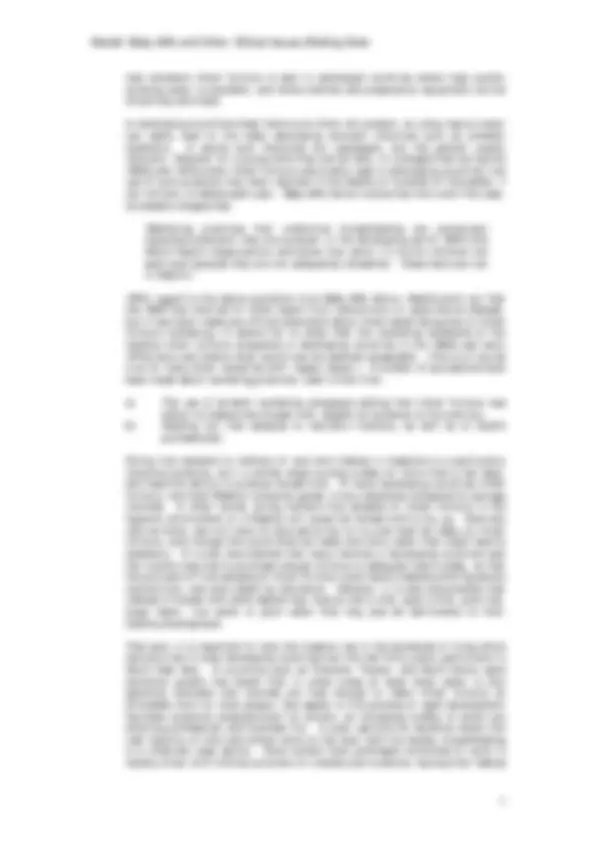
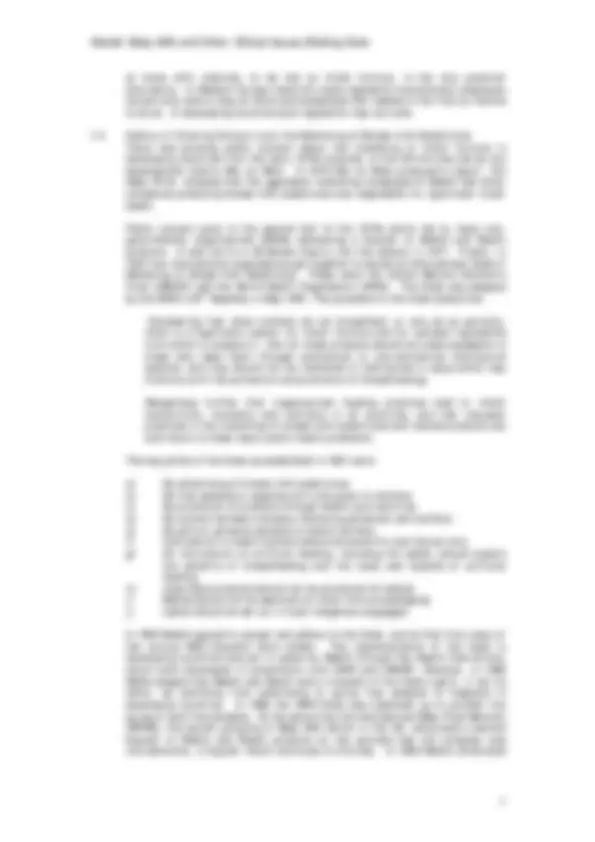
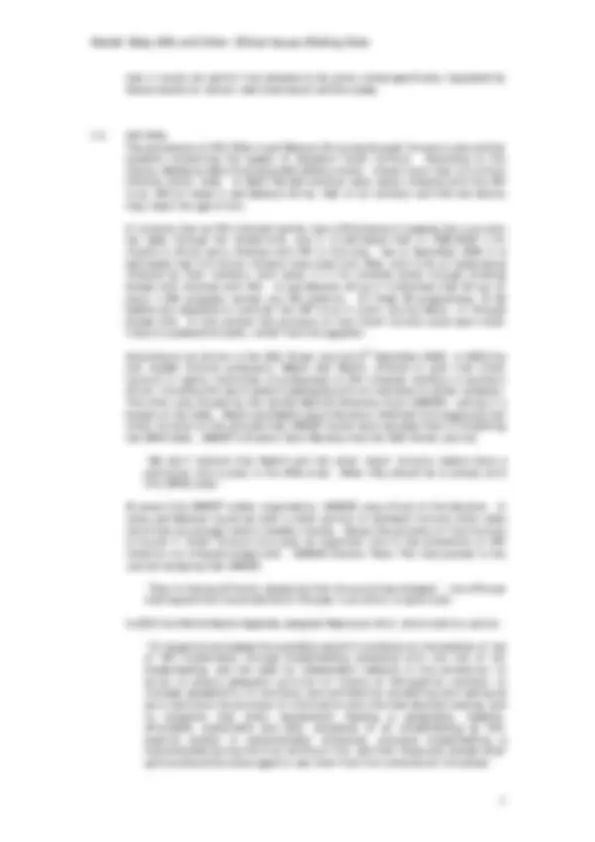
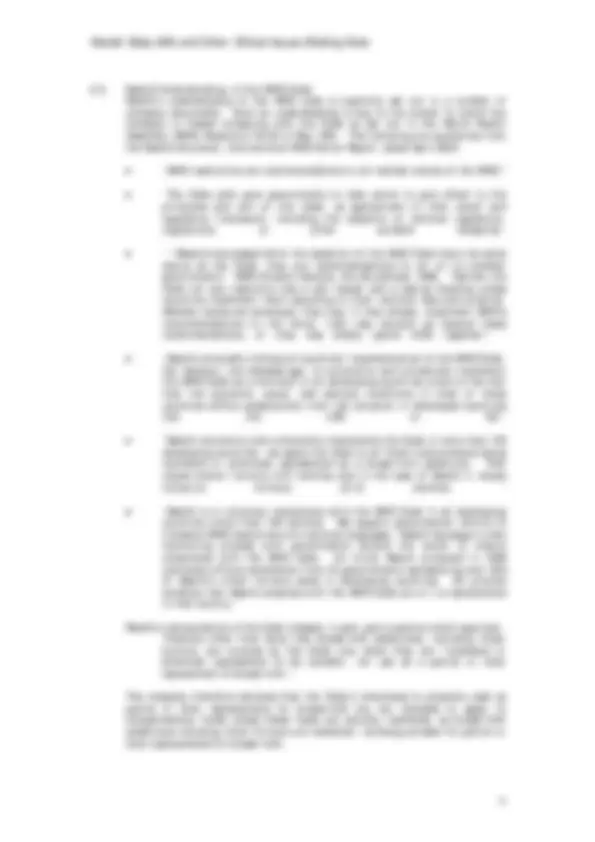
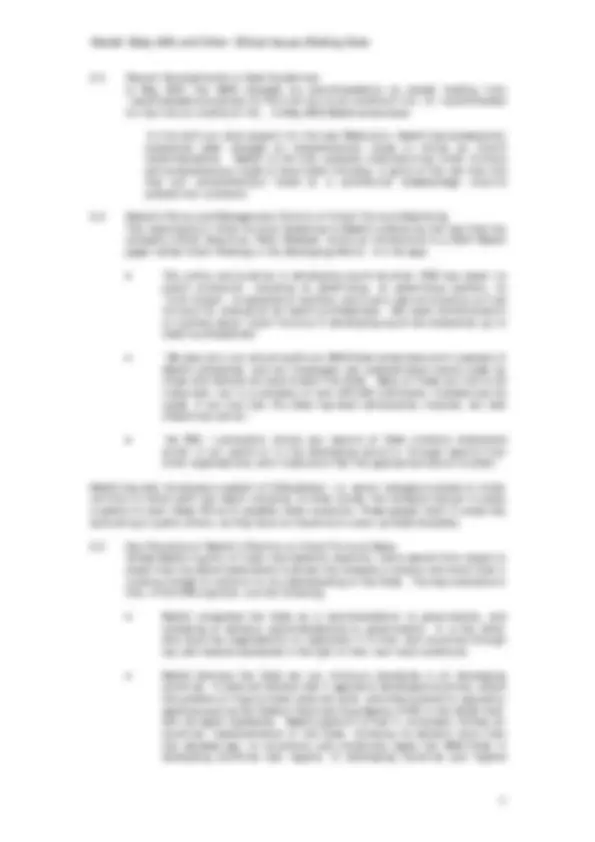
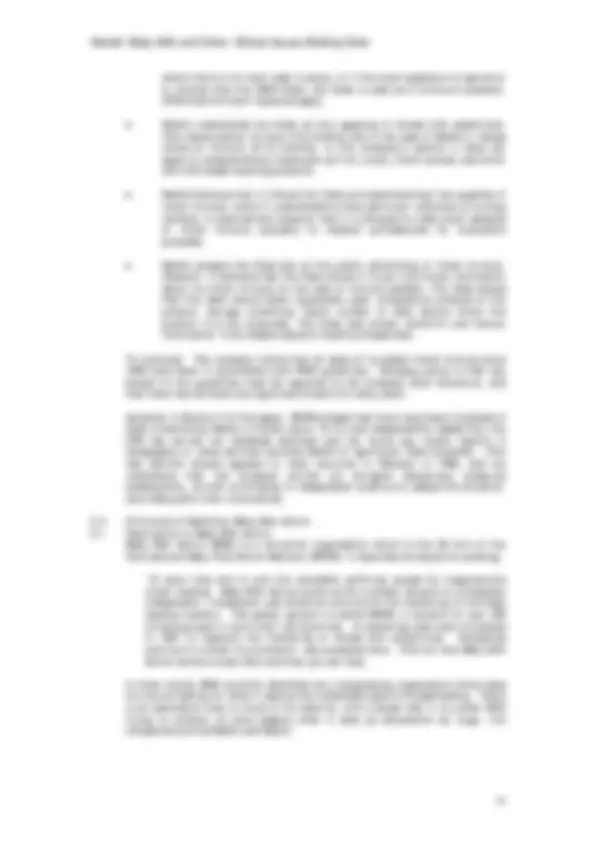
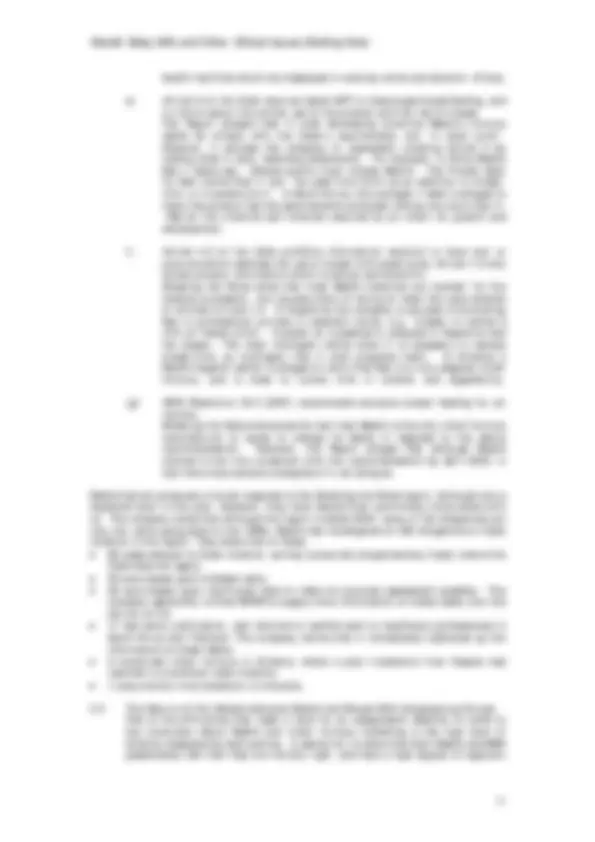
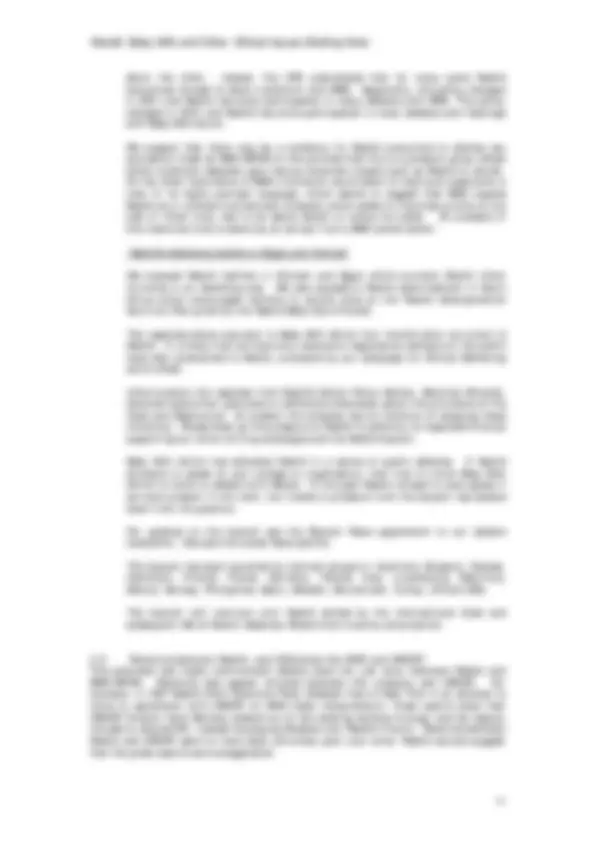
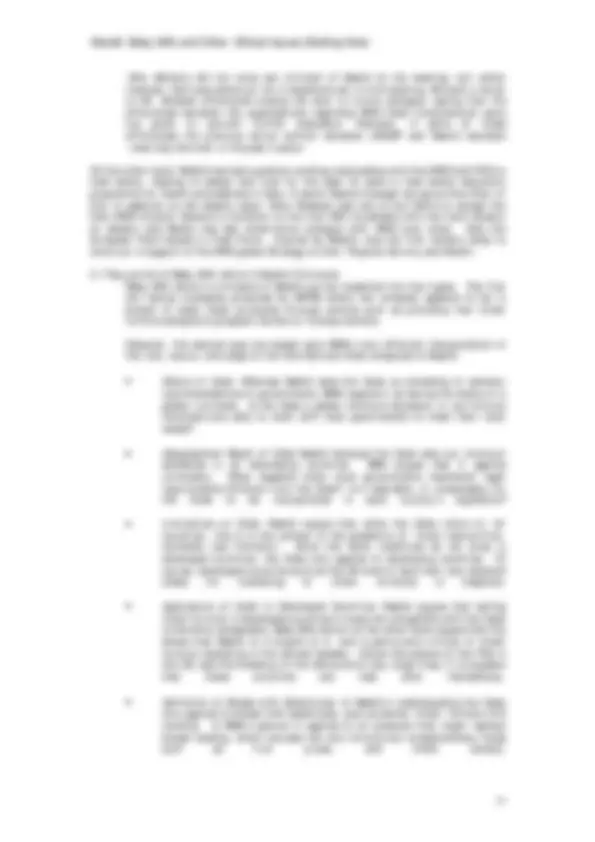
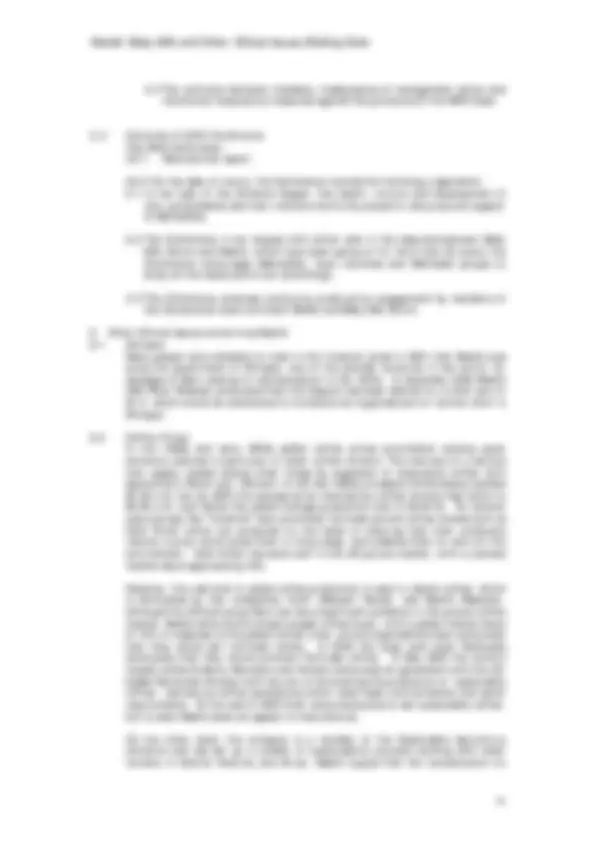
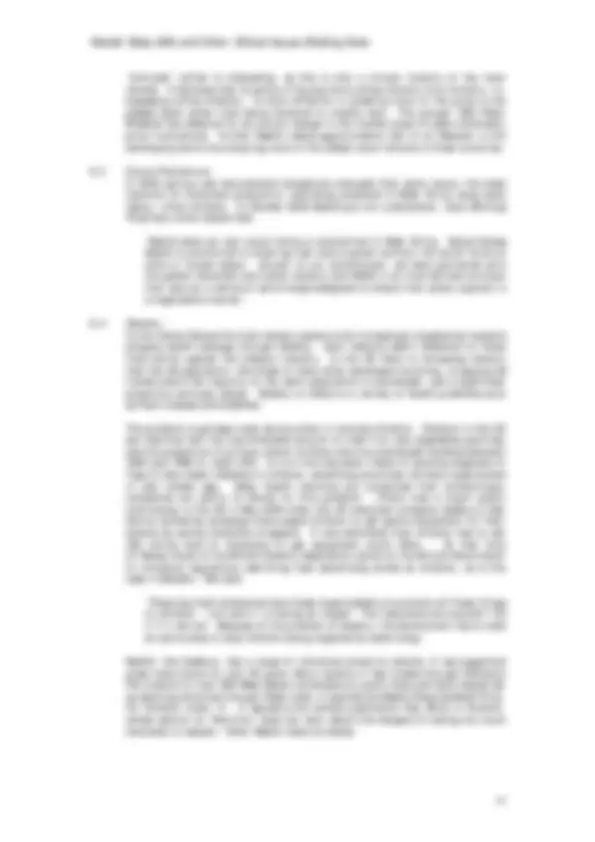
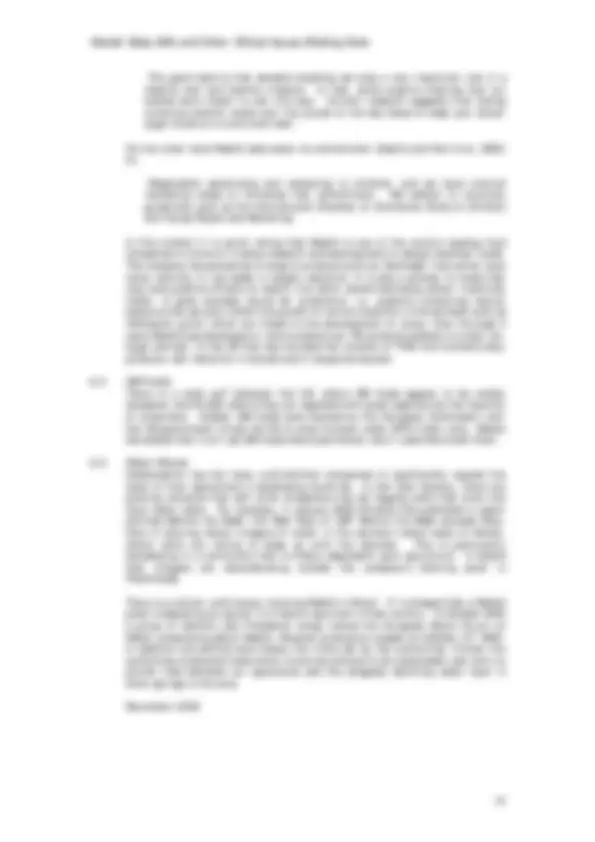


Study with the several resources on Docsity

Earn points by helping other students or get them with a premium plan


Prepare for your exams
Study with the several resources on Docsity

Earn points to download
Earn points by helping other students or get them with a premium plan
Community
Ask the community for help and clear up your study doubts
Discover the best universities in your country according to Docsity users
Free resources
Download our free guides on studying techniques, anxiety management strategies, and thesis advice from Docsity tutors
Manufacturers such as Nestlé deny that fruit juices and infant cereal are covered by the Code, whereas Baby Milk Action insists that they are. The controversy ...
Typology: Lecture notes
1 / 20

This page cannot be seen from the preview
Don't miss anything!













Introduction This briefing paper has been produced by the Central Finance Board of the Methodist Church (CFB). It attempts to set out the ethical issues, not to reach conclusions. Where any opinions appear to be given they should not be viewed as representing CFB policy. Similarly, they should not be considered as representative of the views of the Methodist Church in general or the Public Life and Social Justice team in particular.
It constitutes the initial stage of a consultation process designed to enable the Methodist Church through its Joint Advisory Committee on the Ethics of Investment (JACEI) to assess the ethical suitability of Nestlé as a potential investment, and to advise the Central Finance Board of the Methodist Church accordingly. The consultation will pay particular attention to Nestlé’s performance with respect to the International Code of Marketing of Breast-milk Substitutes. Other aspects of Nestlé’s business will also be considered in arriving at a conclusion.
Contents The structure of this paper is as follows:
The controversy relating to milk-based nutritional products described in this briefing paper refers exclusively to standard infant formula. It is important to distinguish between standard formula and other nutritional supplements. Milk- based nutritional supplements are mostly used to feed individuals with impaired digestive systems. These include premature babies, children, or adults with diseases of the digestive system, people with HIV/AIDs, and the elderly who can no longer eat ordinary food. As such products are clearly life-enhancing and are not controversial.
The whole question of the production and sale of standard infant formula products is, on the other hand, hugely controversial. Certain groups and individuals believe that the benefits of breastfeeding are so great that sales of standard infant formula products should be strongly discouraged, if not banned. Infant formula is produced by 26 companies, but the standard formula market is dominated by three companies. Nestlé is the largest, trading under the ‘Nestlé Nidina’ and ‘Nestlé Beba’ labels in Europe, and ‘Nestlé Nan’ in Africa. Second largest is the US pharmaceutical company Wyeth (formerly known as American Home Products) which sells the ‘SMA’ and ‘Nursoy’ brands, followed by the Dutch company Numico which trades under the Nutricia label. It should be noted that both Nestlé and Wyeth are also leading producers of other nutritional supplements.
1.2. Infant Formula in Developed Countries From the beginning of the twentieth century until the 1960s medical opinion in developed countries such as the UK favoured bottled infant formula over breast- feeding. There were a number of reasons for this. It was thought that boiling bottled feed made it more hygienic than breast-milk. As a result of the Great Depression of the 1930s, and wartime austerity in the 1940s, many children in the US and Europe suffered from malnutrition. Hence governments at that time thought it desirable for babies to grow as rapidly as possible, so infant formula, which may have a higher calorific value than breast-milk, was the preferred choice of many doctors.
However since that time the consensus of medical opinion has swung round so that breast-milk is now regarded, without doubt, as the best choice for young babies. There have also been other major changes in standard medical advice about the best way to breast feed. Until the 1970s many doctors advocated ‘training’ the baby by limiting feeding to once every four hours, but now it is accepted that babies, particularly young ones, should be fed upon demand.
It is generally accepted that in normal circumstances breast-milk provides the ideal nutrition for babies prior to weaning. However, the primary reason for advocating breastfeeding lies in the fact that in the first six months of life an infant’s immune system is not fully developed. The child’s mother’s milk contains her antibodies which help the infant fight infection; if both the mother and baby are exposed to an infection, the mother’s immune system automatically produces antibodies which protect the baby. Obviously standard milk formula cannot contain such custom- made antibodies. It is for this reason that the World Health Organization recommended in 2001 that mothers should exclusively breast feed for the first six months, but that they could then use breast-milk substitutes until the baby was fully weaned at 18 months - 2 years.
The benefits of breastfeeding as regards anti-bodies are unquestioned. However, medical science suggests that there are a number of other additional health benefits from breast-feeding, particularly in terms of reduced risk of childhood diabetes and allergic diseases such as asthma. It is also claimed that breastfeeding helps develop an emotional bond between mother and child, which is beneficial for the later psychological development of the child. Lastly, research indicates that a prolonged period of breastfeeding is also beneficial for the mother in terms of a slightly reduced risk of breast cancer.
However, apart from the important exception of antibodies in the first six months of life, the medical benefits from breastfeeding compared to using infant formula in developed countries are not particularly great. The campaign against standard formula baby milk is based upon the principle that ‘breast is best’. However, this seems to ignore the social changes that have taken place in Europe and North America over the past thirty years. It might have been possible for most Western women to breastfeed their newborn babies every few hours in the 1950s, when they stayed at home. Now, it is simply impractical, if not impossible, for women who go out to work to breastfeed their child exclusively. While a minority of women may work in places where crèches are readily available, for most women such an option is not available. In such cases the use of standard formula milk-based feeds are essential, unless society decides that a women’s right to work should be downplayed, as it was in developed countries in the 1950s, and may be today in some developing nations.
1.3 The Use of Infant Formula in Developing Countries The above issues are also applicable to the sales of infant formula in developing countries. However, there are also very real concerns which are specific to developing countries. In particular they relate to the marketing of infant formula in countries where there is no general access to pure water. There is little dispute
at home with relatives, to be fed on infant formula, is the only practical alternative. In Western Europe maternity leave legislation economically empowers women who wish to stay at home and breastfeed their babies in the first six months to do so. In developing countries such legislation may not exist.
1.4 History of Growing Concern over the Marketing of Breast-milk Substitutes There was growing public concern about the marketing of infant formula in developing countries from the early 1970s onwards. In the UK this was led by the development charity War on Want. In 1976 War on Want produced a report, The Baby Killer , alleging that the aggressive marketing campaigns of Nestlé and other companies producing breast-milk substitutes was responsible for significant infant death.
Public concern grew In the second half of the 1970s which led to many non- governmental organizations (NGOs) advocating a boycott of Nestlé and Wyeth products. It also led to a US Senate Inquiry into the subject in 1977. Finally, in 1981 two international organisations got together to devise an International Code of Marketing of Breast-milk Substitutes. These were the United Nations Children’s Fund (UNICEF) and the World Health Organisation (WHO). The Code was adopted by the WHO’s 34th^ Assembly in May 1981. The preamble to the Code states that:
‘Considering that when mothers do not breastfeed, or only do so partially, there is a legitimate market for infant formula and for suitable ingredients from which to prepare it; that all these products should be made accessible to those who need them through commercial or non-commercial distribution systems, and they should not be marketed or distributed in ways which may interfere with the protection and promotion of breastfeeding;
Recognising further that inappropriate feeding practices lead to infant malnutrition, morbidity and mortality in all countries, and that improper practices in the marketing of breast-milk substitutes and related products can contribute to these major public health problems’.
The key points of the Code as established in 1981 were:
a) No advertising of breast-milk substitutes. b) No free samples or supplies are to be given to mothers. c) No promotion of products through health care facilities. d) No contact between company marketing personnel and mothers. e) No gifts or personal samples to health workers. f) Information to health workers should be scientific and factual only. g) All information on artificial feeding, including the labels, should explain the benefits of breastfeeding and the costs and hazards of artificial feeding. h) Unsuitable products should not be promoted for babies. i) Babies should not be depicted on infant formula packaging. j) Labels should be set out in local indigenous languages.
In 1984 Nestlé agreed to accept and adhere to the Code, and at that time many of the various NGO boycotts were ended. The implementation of the Code in developing countries was put in place by Nestlé through the Nestlé Instructions , which were developed in consultation with WHO and UNICEF. However, in 1986 NGOs alleged that Nestlé and Wyeth were in breach of the Code’s spirit, if not its letter, by switching from advertising to giving free samples to hospitals in developing countries. In 1986 the WHO Code was tightened up to prohibit the giving of such free samples. At the same time the International Baby Food Network (IBFAN), the parent grouping of Baby Milk Action in the UK, announced a second boycott of Nestlé and Wyeth products on the grounds that the company was untrustworthy, a boycott which continues to this day. In 1993 Nestlé announced
that it would not permit free samples to be given unless specifically requested by Governments for certain restricted social welfare cases.
1.5 HIV/AIDs The prevalence of HIV/AIDs in sub-Saharan Africa has brought forward a new ethical question concerning the supply of standard infant formula. According to the charity Medecins Sans Frontieres HIV/AIDS currently infects more than 2.5 million children world- wide. In 2003 700,000 children were newly infected with the HIV virus, 90% of these in sub-Saharan Africa. Half of all children with HIV die before they reach the age of two.
It is known that an HIV infected mother has a 20% chance of passing the virus onto her baby through her breast-milk, and it is estimated that in 1990-2000 1.7m infants in Africa were infected with HIV in this way. Up to December 2000 it is estimated that 3.8 million children have died from AIDs, with 3.4m of these being infected by their mothers, with some 1.1-1.7m infected solely through drinking breast-milk infected with HIV. In sub-Saharan Africa it is believed that 90 out of every 1,000 pregnant women are HIV positive. Of these 90 pregnancies, 27- babies are expected to contract the HIV virus in utero , during labour, or through breast-milk. In this context the provision of free infant formula could save infant lives on a substantial scale, rather than the opposite.
According to an article in the Wall Street Journal (5th^ December 2000), in 2000 the two largest formula producers, Nestlé and Wyeth, offered to give free infant formula in tightly controlled circumstances to HIV infected mothers in southern Africa, including the use of generic packaging with no reference to either company. This offer was refused by the United Nations Childrens Fund (UNICEF), calling it a breach of the Code. Wyeth and Nestlé were therefore inhibited from supplying free infant formula on the grounds that UNICEF would have accused them of breaching the WHO Code. UNICEF’s Director Carol Bellamy told the Wall Street Journal:
‘We don’t believe that Nestlé and the other major formula makers have a particular role to play in the AIDs crisis. What they should do is comply with the (WHO) code.’
At same time UNICEF’s sister organisation, UNAIDS, was critical of this decision. In many sub-Saharan countries even a small portion of standard formula often costs more than an average family’s weekly income. Hence the provision of free formula is crucial if infant formula is to play an important role in the prevention of HIV infection via infected breast-milk. UNAIDS Director Peter Piot was quoted in the Journal as saying that UNICEF:
‘They’re having difficulty accepting that the world has changed’….the UN must look beyond the fierce battles of the past in an effort to save lives.’
In 2001 the World Health Assembly adopted Resolution 54.2, which calls for action:
‘To recognize and assess the available scientific evidence on the balance of risk of HIV transmission through breastfeeding compared with the risk of not breastfeeding, and the need for independent research in this connection; to strive to ensure adequate nutrition of infants of HIV-positive mothers; to increase accessibility to voluntary and confidential counselling and testing so as to facilitate the provision of information and informed decision-making; and to recognize that when replacement feeding is acceptable, feasible, affordable, sustainable and safe, avoidance of all breastfeeding by HIV- positive women is recommended; otherwise, exclusive breastfeeding is recommended during the first months of life; and that those who choose other options should be encouraged to use them free from commercial influences.’
b) Role of Infant Formula in Child Death It cannot be disputed that hundreds of thousands of young children die each year in the developing world due to malnutrition or water-borne disease. In the context of Nestlé is it not important to distinguish between baby deaths that arise from the use, or misuse, of infant formula due to inappropriate marketing by leading infant formula producers, and those that are due to other causes. These might include ignorance on the part of the mother, and the grossly inadequate health care systems which exist in much of southern Africa. As described in section 1.6 it is impossible to find pure water in much of Africa. Although the United Nations has pledged to make clean water available to all of the world’s population, this is a long way from being achieved.
c) Supplying Infant Formula in Areas of Weak Healthcare Systems. In other words, how morally culpable are the infant formula producers if they act as reasonable suppliers of infant formula to countries with grossly inadequate health care systems such as those in southern Africa, where misuse of their products then occurs? For the sake of argument, let us assume that they are fully compliant with the International Code, but that their products are still linked to child death. If the misuse of standard formula products arises from ignorance or misunderstanding in the context of inadequate medical systems, is it unfair to blame the companies for this? It could be argued that infant formula should be withdrawn entirely from such countries. On the other hand, such a withdrawal could lead to increased infant malnutrition through replacement of infant formula by much more inappropriate substitutes such as goats milk, or sugar water. The prevalence of HIV/AIDs in southern Africa also needs to be taken into account.
d) Compliance with the International Code One of the key ethical issues surrounding infant formula relates to the extent to which the formula manufacturers are complying with the International Code. A large part of the debate relates to the very different interpretations of the Code made by Nestlé and Baby Milk Action. The complexity of this debate can make it hard to see the wood for the trees. From an ethical point of view perhaps the key question could be that while there has been a massive improvement in the marketing standards used to promote infant formula in developing countries, is this enough?
e) Social Responsibility Considerations Another ethical issue concerns broader social responsibility considerations. In other words are the infant formula producers showing a narrow legalistic ‘compliance’ attitude to the Code, but ignoring broader ethical issues? In particular what should they do when marketing formula in developing countries with inadequate healthcare systems. Some critics would argue that it is the role of governments to legislate or provide guidelines appropriate to the social and developmental context of the country concerned, where there exists a lack of capacity to implement and monitor such legislation then, in this day and age, the company must exercise diligence towards consumers with respect to the use of their products. Indeed they should do so without needing to be prompted by government, otherwise company mission statements count for very little.
2. Nestlé Policy on the Marketing of Infant Formula 2.1 History Infant formula is one of Nestlé’s oldest products, having been invented by Henri Nestlé in 1867. It now accounts for less that 2% of total group turnover, but it was the company’s principal product until the early 1900s. This corporate history probably explains why Nestlé appears fiercely attached to maintaining its presence in this area, and why the company feels obliged to argue its case so strongly. Given the enormous negative publicity that the subject of ‘baby milk’ has generated for Nestlé over the last thirty years, on a strict cost-benefit analysis it would probably make sense for the company to exit the standard infant formula market. However, we suspect that a sense of corporate history probably prevents it from doing so.
2.2. Nestlé Understanding of the WHO Code Nestlé’s understanding of the WHO code is explicitly set out in a number of company documents. Such an understanding is key to the extent to which the company is indeed complying with the Code as set out in the World Health Assembly (WHA) Resolution 34.22 of May 1981. The following are quotations from the Nestlé Document, International WHO Action Report , dated April 2003:
Nestlé’s interpretation of the Code is based, in part upon a section which says that: ‘Products other than bona fide breast-milk substitutes, including infant formula, are covered by the Code only when they are “marketed or otherwise represented to be suitable …for use as a partial or total replacement of breast-milk .”
The company therefore believes that the Code’s references to products used as partial or total replacements for breast-milk are not intended to apply to complementary foods unless these foods are actually marketed- as breast-milk substitutes including infant formula are marketed – as being suitable for partial or total replacements for breast-milk.
where there is no local code in place, or if the local legislation is less strict or precise than the WHO Code, the Code is used as a minimum standard. Otherwise the local measures apply.
To conclude. The company claims that all sales of its global infant formula since 1992 have been in accordance with WHO guidelines. Company policy is that any breach of the guidelines must be reported to the company Chief Executive, and that there has not been any significant breach for many years.
As shown in Section 3 of this paper, IBFAN alleges that there have been hundreds of Code violations by Nestle in recent years. To try and independently assess this, the CFB has carried out database searches and not found any recent reports in newspapers or news services accusing Nestlé of significant Code breaches. (The last definite breach appears to have occurred in Pakistan in 1996, and we understand that the company carried out stringent disciplinary measures subsequently, as well as bringing in independent auditors to assess the situation, and make public their conclusions).
3.0 Criticisms of Nestlé by Baby Milk Action 3.1 Description of Baby Milk Action Baby Milk Action (BMA) is a non-profit organisation which is the UK arm of the International Baby Food Action Network (IBFAN). It describes its objective as being:
‘ To save lives and to end the avoidable suffering caused by inappropriate infant feeding. Baby Milk Action works within a global network to strengthen independent, transparent and effective controls on the marketing of the baby feeding industry. The global network is called IBFAN, a network of over 200 citizens groups in more than 100 countries. A marketing code was introduced in 1981 to regulate the marketing of breast-milk substitutes. Companies continue to violate its provisions - see examples here. Find out how Baby Milk Action works to stop them and how you can help.
In other words, BMA could be described as a campaigning organization which sees its role as fighting for what it sees as the undeniable good of breastfeeding. There is an adversarial tone to much of its material, with a sense that it is a small NGO trying to achieve its aims despite what it sees as obfuscation by huge, rich companies such as Nestlé and Wyeth.
IBFAN'S Seven Principles
3.2 Activities of BMA/ IBFAN Like many NGOs BMA and IBFAN carry out a number of related activities. However, its major function is the production of regular and detailed monitoring reports on what it describes as ‘baby milk’ marketing throughout the world based upon IBFAN’s global network of contacts. IBFAN’s most recent monitoring report was Breaking the Rules, Stretching the Rules 2004, produced in May 2004. It was claimed that this report: ‘ Documents how baby food companies idealise their products, ignoring the negative health impact of artificial feeding’.
BMA also carries out political lobbying. It presented the evidence from its Breaking the Rules report to the House of Commons on 13 May 2004. The meeting was hosted by Lynne Jones MP who has tabled an Early Day Motion (a petition for MPs) calling for the UK Government to support action to end baby food marketing malpractice in the UK and in other countries. BMA stated that this proposal received significant support across political parties.
IBFAN and BMA also provide expert witnesses to argue its case on a technical basis. For example it sent a delegation in May 2004 to the Geneva meeting of the World Health Assembly discussing current concerns in infant and young child nutrition. IBFAN experts presented evidence on bacterial contamination of powdered formula and the increased use of bogus health claims to promote artificial feeding.
3.3 IBFAN’s Current Monitoring Document The Breaking the Rules, Stretching the Rules 2004 Report monitored and analysed the promotional practices of 16 transnational baby food companies and 14 bottle and teat companies between January 2002 and April 2004. The benchmark standards used for measuring marketing practices were the International Code of Marketing of Breast-milk Substitutes and subsequent, relevant World Health Assembly (WHA) Resolutions. The criteria used in producing this Report were to analyse infant marketing on the basis of ‘ defending breastfeeding and ensuring that breast-milk substitutes are used safely, if necessary, on the basis of adequate information and appropriate marketing’.
Some 3,000 complaints were received from monitors in 69 countries around the world. After legal checking about 2,000 violations were reported in Breaking the Rules and many of these came with photos. Yeong Joo Kean, IBFAN's Legal Advisor said: "We have 712 pictures of actual violations in the report. There is no way that the companies can deny that they were found in flagrant violation of the Code and Resolutions." The main criticisms of the food companies in the Report were as follows:
health facilities which are displayed in waiting rooms and doctors’ offices.
e) Article 9 of the Code requires labels NOT to discourage breastfeeding, and to inform about the correct use of the product and the risk of misuse. The Report accepts that in most developing countries Nestlé’s formula labels do comply with the Code’s requirements, but ‘in small print’. However, it accuses the company of repeatedly violating Article 9 by making what it calls’ idealising statements’. For example, in China Nestlé Nan 1 labels say: ‘Choose quality food, choose Nestlé’. The Finnish label for Nan claims that it can: ‘be used from birth as an addition to breast- milk, or to substitute it’. In South Africa, the Lactogen 1 label is alleged to imply the product has the same benefits as breast-milk by the claim that it: ‘ Has all the vitamins and minerals required by an infant for growth and development.
f) Article 4.2 of the Code prohibits information material to have text or pictures which idealises the use of breast-milk substitutes. Article 7.2 only allows product information which is factual and scientific. Breaking the Rules notes that most Nestlé materials are marked ‘for the medical profession’, but accuses them of failing to meet the requirements of articles 4.2 and 7.2. In Argentina the company is accused of promoting Nan in professional journals in idealistic terms, e.g_. ‘closest to mother’s milk at lowest price’._ A poster at a paediatric congress in Argentina had the slogan: ‘The most intelligent choice when it is necessary to replace breast-milk; so intelligent that it even prepares itself .’ In Armenia a Nestlé hospital leaflet is alleged to claim that Nan is a fully adapted infant formula, and is close to human milk in content and digestibility.
(g) WHA Resolution 54.2 (2001) recommends exclusive breast feeding for six months. Breaking the Rules welcomes the fact that Nestlé is the only infant formula manufacturer to agree to change its labels in response to the above recommendation. However, the Report alleges that although Nestlé claimed to be fully compliant with the recommendation by April 2003, in fact there were several examples of it not doing so.
Nestlé has not produced a formal response to the Breaking the Rules report, although one is expected later in the year. However, they have shared their preliminary conclusions with us. The company notes that although the report is dated 2004, many of the allegations are very old, some going back to the 1990s. Nestlé has investigated all 200 allegations of Code violation in the report. They state that of these:
3.5 The Nature of the Debate between Nestlé and Breast-Milk Campaigning Groups One of the difficulties that make it hard for an independent observer to come to any conclusion about Nestlé and infant formula marketing is the high level of emotion displayed by both parties. It seems fair to state that both Nestlé and BMA passionately feel that they are morally right, and have a high degree of suspicion
about the other. Indeed, the CFB understands that for many years Nestlé executives refused to share a platform with BMA. Apparently, this policy changed in 2001 and Nestlé has since participated in many debates with BMA. This policy changed in 2001 and Nestlé has since participated in many debates and meetings with Baby Milk Action.
We suspect that there may be a tendency for Nestlé executives to dismiss any accusation made by BMA/IBFAN on the grounds that this is a pressure group whose whole existence depends upon having corporate targets such as Nestlé to attack. On the other hand some of BMA’s literature would seem to feed such suspicions in view of its highly partisan language, which seems to suggest that BMA regards Nestlé as a ruthless multinational company which seeks to maximise profits at the cost of infant lives, and is not above deceit to covers its tracks. An example of this rhetorical tone is shown by an extract from a BMA leaflet below:
‘Nestlé's idealising leaflets in Egypt and Vietnam
We exposed Nestlé leaflets in Vietnam and Egypt which promote Nestlé infant formulas in an idealising way. We also exposed a Nestlé advertisement in South Africa which encouraged mothers to attend talks on the 'Nestlé Developmental Nutrition Plan' given by the 'Nestlé Baby-Care Friends'.
The response below was sent to Baby Milk Action four months after we wrote to Nestlé. It is likely that we have only received a response as members of the public have also complained to Nestlé, prompted by our Campaign for Ethical Marketing action sheet.
Unfortunately the response from Nestlé's Senior Policy Advisor, Beverley Mirando, demonstrates either ignorance or deliberate dishonesty about the provisions of the Code and Resolutions. At present the company has no intention of stopping these violations. Please keep up the pressure on Nestlé to abide by its responsibilities by supporting our letter-writing campaigns and the Nestlé boycott.
Baby Milk Action has defeated Nestlé in a series of public debates. If Nestlé attempts to speak at your college or organisation, feel free to invite Baby Milk Action to come to debate with Nestlé. In the past Nestlé refused to even speak if we were present in the room, but thanks to pressure from the boycott has backed down from this position.
For updates on the boycott see the Boycott News supplement to our Update newsletter. Also see the Latest News section.
The boycott has been launched by national groups in: Australia, Bulgaria, Canada, Cameroon, Finland, France, Germany, Ireland, Italy, Luxembourg, Mauritius, Mexico, Norway, Philippines, Spain, Sweden, Switzerland, Turkey, UK and USA).
The boycott will continue until Nestlé abides by the International Code and subsequent World Health Assembly Resolutions in policy and practice .’
3.6 Relations between Nestlé, and UN bodies like WHO and UNICEF This polarised and highly controversial debate does not just occur between Nestlé and BMA/IBFAN. Relations also appear strained between the company and UNICEF. For example, in 1997 Nestlé Chief Executive Peter Brabeck flew to New York in an attempt to come to agreement with UNICEF on WHO Code interpretation. Press reports state that UNICEF Director Carol Bellamy walked out of the meeting halfway through, and her deputy refused to discuss HIV, instead haranguing Brabeck over Nestlé’s faults. Relations between Nestlé and UNICEF seem to have been extremely poor ever since. Nestlé sources suggest that the press reports were exaggerated:
4.1 Role and Description of FTSE4Good The FTSE4Good SRI index series incorporates breast-milk substitutes as one of its key ethical criteria. It therefore provides some independent assessment of this contentious area.
FTSE4Good is a family of SRI or ethical stock market indices which was launched in July 2001. FTSE recognised the need for a partner to add SRI expertise to its own skills in index construction, so the FTSE4Good index series was therefore created in association with EIRIS. The underlying concept was to construct a broadly based SRI index for a number of regional markets: the UK, US; Europe, and the world, with the objective of producing a benchmark to measure SRI fund performance in these regions. The following exclusions were then used to filter out unacceptable companies: tobacco producers; companies providing strategic parts or services or manufacturing nuclear weapons systems; manufacturers of whole weapons systems, and owners or operators of nuclear power stations and those mining or processing uranium. The basic philosophy underlying the index was to include only companies moving towards best practice in the areas of the environment, human rights, and stakeholder relationships.
4.2 The Role of UNICEF Against the background of the dispute over the marketing of infant formula it is important to note that the United Nations Children’s Fund (UNICEF) agreed to be associated with FTSE4Good in return for the right to nominate three members of the Advisory Committee. UNICEF also gained the commitment of FTSE to pay it all the net license income FTSE received from its clients in the first twelve months of operation, as well as a 50p charge on each trading screen showing the data. FTSE International hoped that this would generate revenues estimated at $1m (£600,000) for donation to UNICEF.
4.3 FTSE4Good’s Changed Criteria Relating to Infant Formula From its inception in July 2001 the FTSE4Good index series excluded on ethical grounds eight food and pharmaceutical companies producing breast-milk substitutes on the grounds that they were in breach of the International Code of Marketing of Breast-Milk Substitutes. These companies were: Abbot Labs; Bristol Myers Squibb; Heinz; Meiji Milk; Nestlé; Novartis; Nutrimco, and Wyeth.
However in March 2004 the FTSE Group announced that it was lifting its blanket ban on such companies following an extensive process of public consultation. FTSE4Good stated that from now on it would use ‘measurable inclusion criteria.’ The announcement stated:
‘FTSE will establish a small Expert Committee, comprising academics and experts on the industry, which will review company reports to assess whether they adhere to the FTSE4Good criteria and to make recommendations to the FTSE4Good Policy Committee as to the continuing eligibility of companies.’
As at October 2004 the CFB inspected list of the companies included in the FTSE4Good, and it found that none of the eight was included in that list, despite
the recent revision to FTSE4Good’s breast-milk substitute criteria. However, it is possible that UNICEF’s influence has prevented FTSE4Good from doing so.
5. The Methodist Church Position 5.1 History of Methodist Church position on marketing of breast-milk substitutes. In 1992 the Methodist Conference adopted Memorial 101, Unethical Marketing Methods, which urging Methodists to inform themselves about the issues involved although the Conference declined to support a boycott of Nestlé products. A major paper discussing the whole subject of breastfeeding was brought to the 1999 Conference (Conference Agenda 19) called What’s Best for Babies? The 1999 Conference approved three related resolutions: 19/1 Conference receives the report and encourages local churches and Methodist groups to study all the issues and to act accordingly. 19/2 Conference calls on Her Majesty’s Government to incorporate into legislation the provisions of the WHO Code and the subsequent resolutions of the World Health Assembly, and monitor their application in the NHS. 19/3 Conference encourages Methodists in Britain to support the Baby Friendly Hospital Initiative, and further encourages Methodists in conversation with partner Churches overseas to support BFHI in many countries of the world.
5.2 Methodist Council (2) The Methodist Council, the executive body of the Methodist Church, was concerned that the 1999 resolution ‘ left the Conference’s position uncertain’. It therefore submitted a report to the 2000 Methodist Conference called What’s Best For Babies? ( Methodist Council 2 ). This report was received by the 2000 Conference, therefore becoming the definitive statement of the Methodist Church’s position on the issue. This paper noted the following (the following numbers refer to the 2000 Conference Agenda):
3. There is no convincing evidence which points to an accommodation, understanding or agreement between Baby Milk Action (BMA) and Nestlé in the foreseeable future.
4. The British Methodist Church has no way independently of adjudicating on the ongoing disputes between BMA and Nestlé. It remains unwise for the Church to be aligned unequivocally with one side or other.
The church needs to be in a position where it can exercise a critical role towards both parties to the dispute, and express its anxieties about the behaviour of both.
5.0 The irreconcilable conflict between Baby Milk Action and Nestlé has several dimensions to it.
5.1 The WHO International Code of Marketing of breast-milk substitutes is designed to protect mothers and health workers from commercial pressures. The WHO has provoked many interpretations, not to mention the relationship between the Code and subsequent resolutions of the World Health Assembly. On the one side are those who insist that the Code must be applied in every context, irrespective of national law. On the other are those who insist that the Code requires its claims to be incorporated by each government into national legislation in realistic and achievable ways appropriate to their context.
5.2 The disputes about the sort of evidence which might constitute a breach of the Code, and the means by which evidence is to be tested to assure its reliability and truthfulness.
5.3 The failure of international bodies to work together towards a common framework of understanding.
‘fairtrade’ coffee is misleading, as this is only a minute fraction of the total market. It believes that its policy of buying more coffee directly from farmers, i.e. bypassing coffee brokers, is more effective in enabling more of the price to be passed back rather than being diverted to middle men. The groups’ CEO Peter Brabeck has lobbyied for structural change in the market place to ease commodity price fluctuations. Further Nestlé makes approximately half of all Nescafe in the developing world thus ensuring more of the added value remains in those countries.
6.3 Cocoa Plantations In 2002 serious and documented allegations emerged that some cocoa, the base material for chocolate production, was being produced in West Africa using slave labour, often children. In October 2003 Nestlé put out a statement, Coca Working Practices, which stated that:
‘Nestlé does not own cocoa farms or plantations in West Africa. Nevertheless Nestlé is committed to ensuring that coca is grown without the worst forms of child or forced labour. As part of our commitment, we have partnered with the global chocolate and cocoa industry and NGOs in an international protocol that lays out a series of action steps designed to ensure that cocoa is grown in a responsible manner.’
6.4 Obesity In the United States the food industry seems to be increasingly targeted by lawsuits alleging health damage through obesity. Such lawsuits seem modelled on those filed earlier against the tobacco industry. In the UK there is increasing concern that the UK population, like those of many other developed countries, is copying US trends where the majority of the adult population is overweight, and a significant proportion seriously obese. Obesity is linked to a variety of health problems such as heart disease and diabetes.
This problem is perhaps most serious when it involves children. Children in the UK eat less than half the recommended amount of fresh fruit and vegetables each day and the proportion of primary school children who are overweight doubled between 1984 and 1998 to reach 25%. In turn this has been linked to growing diagnosis of Type 2 (late onset) diabetes in children, something previously normally experienced in late middle age. Many health charities are concerned that confectionery companies are partly to blame for this problem. (There was a major public controversy in the UK in May 2003 when the UK chocolate company Cadbury’s Get Active marketing campaign encouraged children to get sports equipment for their schools by saving chocolate wrappers. It was estimated that children had to eat 160 million bars of chocolate to get equipment worth £9m). At that time Dr Wendy Doyle of the British Dietetic Association called for the British Government to introduce regulations restricting food advertising aimed at children, as is the case in Sweden. She said:
‘These big food companies have these huge budgets to promote all these things to children. I am sure it is having an impact - the manufacturers wouldn’t do it if it did not. Because of the problem of obesity, the Government has to take an active step to stop children being targeted by advertising.’
Nestlé, like Cadbury, has a range of initiatives aimed at schools. It has supported grass roots tennis for over 40 years. More recently it has funded through 4Children the creation of over 600 Make Space contemporary youth clubs and have helped set up sporting activities through these clubs. It awards the Nestlé Smarties Book Prize, for children under 11. It sponsors the schools publication Key Skills in Context, whose section on ‘Nutrition’ does not warn about the dangers of eating too much chocolate or sweets. Other Nestlé material states:
‘The good news is that sensible snacking can play a very important role in a healthy diet and healthy lifestyle. In fact, some experts theorise that our bodies were meant to eat this way. Current research suggests that having numerous smaller meals over the course of the day helps to keep your blood- sugar levels on a more even keel.’
On the other hand Nestlé does state its commitment ( Nestlé and Nutrition , 2003) to:
‘Responsible advertising and marketing to children, and we have internal marketing codes to formalise that commitment. We adhere to voluntary guidelines, such as the International Chamber of Commerce Rules on Children and Young People and Marketing. ’
In this context it is worth noting that Nestlé is one of the world’s leading food companies in terms of funding research and development to design healthier foods. The company has pioneered a range of products such as ‘Sveltesse’ that either have lower calories, or can assist in weight reduction. It is also a pioneer of foods that may have positive effects on health, the latter sometimes being called ‘functional foods’. A good example would be ‘probiotics’ i.e. yoghurts containing natural bacteria that actually inhibit the growth of harmful bacteria in the stomach such as Helibacter pyliori which are linked to the development of ulcers. Over the past 5 years Nestlé has developed or reformulated over 700 products globally to lower fat, sugar and salt. In the UK that has included the removal of TFAs from confectionery products, salt reduction in cereals and in soups and sauces.
6.5 GM Foods There is a wide gulf between the US, where GM foods appear to be widely accepted, and Europe where they are regarded with great suspicion by the majority of consumers. Indeed, GM foods were banned by the European Commission until the US government forced the EU to drop this ban under WTO trade rules. Nestlé has stated that it will use GM foods where permitted, and if customers want them.
6.6 Water Misuse Globalisation has led many multinational companies to significantly expand the scale of their operations in developing countries. In the food industry, there are growing concerns that soft drink companies may be digging wells that drain the local water table. For example, in January 2004 Christian Aid published a report entitled Behind the Mask- the Real Face of CSR. Behind the Mask accused Coca- Cola of starving Indian villagers of water in the southern Indian state of Kerala, where wells are failing to keep up with the demand. This is particularly devastating in a community that is mostly dependent upon agriculture. It stated that villagers are demonstrating outside the company’s bottling plant in Plachimada.
There is a similar controversy involving Nestlé in Brazil. It is alleged that a Nestlé plant is depleting an aquifer in a historic spa town in that country. In October 2004 a group of Catholic and Protestant clergy visited the European Social Forum on Water complaining about Nestlé. However production ceased on October 31st^ 2004. In addition extractions were below the limits set by the authorities. Further the authorities conducted tests which found extractions to be sustainable and with no proven links between our operations and the allegedly declining water level in other springs in the area.
November 2004